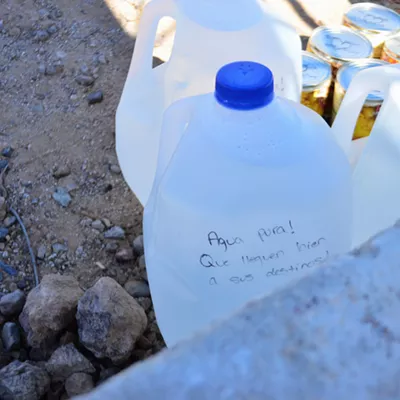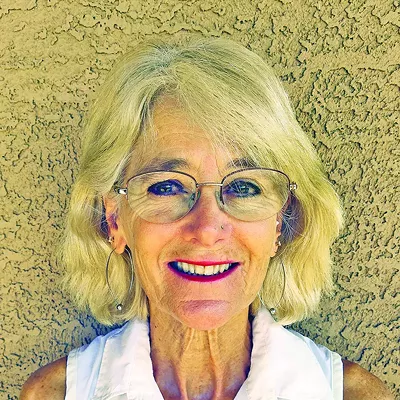This fire season has wrought destruction, sorrow and scapegoating of proportions that boggle the mind and wrench the heart. Controversy over blame for the wildfires on the border has been nearly as hot as the flames and embers themselves.
Could border-crossers be responsible for igniting some of these devastating blazes? Sure. What about Border Patrol agents, their vehicles or equipment? Absolutely. Our border wildlands are overrun with both.
Following in John McCain's footsteps, the Tucson Weekly's "Arizona Burning" article (June 30) put the blame squarely on migrant shoulders, giving voice to the supposition that campfires and signal beacons along clandestine border trails are the most likely culprit. Weekly readers are familiar with this argument by now. In countless stories, one author has blamed trash, theft, dead livestock, environmental damage, murder and, yes, wildfires along the border on economic migrants, though he prefers to label them with the degrading term "illegals."
Some warn against dismissing the work of Leo W. Banks; after all, he has won several journalism awards. It was only last month that the Center for Immigration Studies, dubbed a nativist, restrictionist hate group by the Southern Poverty Law Center, awarded Banks the 2011 Eugene Katz Award for Excellence in the Coverage of Immigration. Prior awardees include Lou Dobbs, who made headlines when he moved to Fox after a long career of bashing immigrants for CNN.
Banks' brand of sensationalist hearsay journalism aside, blaming migrants for Arizona's border woes misses the point. The scofflaws that plague Arizona with border mayhem walk the boulevards of the Beltway, not the trails of Peck Canyon.
Since the mid-1990s, the federal government has pursued and implemented border policies that have proven nothing short of catastrophic. It began in 1994 when the North American Free Trade Agreement increased the cross-border flow of capital. When labor followed the money, lawmakers took a more-protectionist tack. Instead of a go-with-the-flow approach, monumental efforts went into walling migrant laborers out. Borders, especially in urban areas, were militarized with walls, agents, cameras, sensors, helicopters and more. Border-crossers who had once hopped chain link in Nogales now cut barbed wire beyond Arivaca, walking day and night through the wild hinterlands. Arizonans took notice by what was left behind: clothing, water jugs, footpaths and the migrants themselves—some injured, some dead. Perhaps also the potential calamity of a campfire not quite extinguished.
In the aftermath of Sept. 11, a terrorized U.S. Congress made matters worse, allowing the Department of Homeland Security to waive any federal, state, tribal or local law in order to build barriers, walls and roads along the U.S.-Mexico line. Already burdened by unnatural foot and vehicle traffic from migrants, smugglers and the Border Patrol, our borderlands environment was further decimated. Some 650 miles of barriers and walls funneled border-crossers to ever-more-remote and mountainous terrain, while 36 federal protection laws have gone unheeded.
Not far from where the El Camino Fire burned, a national wildlife refuge has been walled, habitat lost, wildlife stranded. Just east of the still-smoldering Monument Fire, a quarter-mile of rusty, man-height vehicle barriers fester in the bed of one of the last undammed rivers in the Southwest. On both river banks of this national conservation area, walls pick up where the barriers leave off, screaming a symbolic "F-you" at the Wild and Scenic Rivers Act, the Clean Water Act, and more.
These walls are illegal, not the people who climb them. Fatal border policies that funnel people out into the border's wildest areas, where every year they die by the hundreds, and run the risk of causing or becoming a victim of a raging wildfire, are flat wrong.
Though fire is a natural element in a healthy forest ecosystem, the ferocity of recent blazes no doubt surpassed acceptable levels. Recovery may be a long time coming to wildlife habitat, cultural resources and personal property. As we muddle through the soul-crushing task of tallying the damages and preparing for monsoon mudslides, we should carefully direct our frustrations and attention away from scapegoats and toward positive change.
Benefit concerts and fundraisers for Arizona fire victims are already seeing success. Please support these efforts. And when your federal government decrees a fire closure of a national forest with one hand, while funneling migrants and law enforcement into that forest with the other, take them to task.








